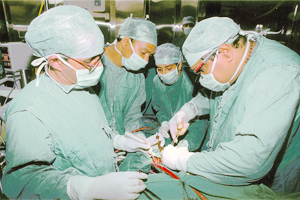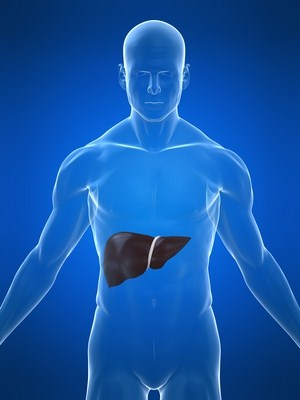A liver transplant surgery can be a viable option for a person with a liver that has failed beyond repair. In a typical liver transplant procedure, the damaged liver is replaced by similar but non-identical liver tissue. The diseased liver is removed from its location and replaced by a part of the donor organ.

An Introduction to Liver Transplant Surgery
To gain a better understanding of the liver, it is essential to learn about some of the basic functions it performs:
- Controls the levels of glucose, amino acids and fats in the blood
- Manufactures bile which is useful in processing lipids in the small intestine
- Neutralizes and destroys toxins and drugs
- Stores vitamins, iron and other such important chemicals
- Regulates hormones including sex hormones like testosterone and estrogen
Information on Liver
Here’s some more information on the liver, and the processes that it helps in:
Liver Function #1 – Production of Instant Energy
The liver’s main function is to break food down into smaller components and release energy in the process when there is a need for it. Carbohydrates are converted to glucose and stored in the muscles and in the liver as glycogen. As and when there is a need for energy, the liver simply converts the glycogen back to glucose to be used by the body.
Liver Function #2 – Removal of Waste
Not all of the body’s wastes are removed by the kidneys. Waste matter in the body which cannot be expelled by the kidneys is absorbed by the liver from the blood. The waste matter then proceeds through the bile ducts into the bowels.
Liver Function #3 – Protection Against Infections
The liver also fights infections that ravage through the body’s defense system, especially infections that are prone to arise in the bowels. The liver does this by activating a defense mechanism present in the body called the Machrophage System. This system contains ‘Kuppfer Cells’ which destroy all the bacteria that harm the body. The liver’s ability to fight off these infections is lost if there is any damage to the liver.
Why Liver Failure Occurs
Liver failure can occur owing to reasons ranging from genetic disorders and commonly known diseases to irresponsible lifestyle choices. The most common causes of liver failure include:
1. Hepatitis
This is basically an inflammation of the liver. This is brought on by both viral and non-viral modes. The non-viral causes for Hepatitis include excessive drug or alcohol use.
-
Hepatitis A:
This is generally observed in countries with poor levels of hygiene and low standards of living. Hepatitis A infection is caused by contamination of drinking water and edibles. Vaccination is recommended in case you intend to travel or stay in such places.
-
Hepatitis B:
Exposure to infected blood is the primary reason for the spread of Hepatitis B. The infection is generally transferred from a mother to her child. But, in certain countries, sharing of needles and sexual intercourse with affected people are the main causes for the spread of Hepatitis B.
-
Hepatitis C:
This disorder is transmitted through the blood.
2. Alcoholic Liver Disease
There is no conclusive evidence to indicate that only heavy drinkers are affected by this. It can be a combination of different factors that may lead to it including genetics. In more serious cases, it causes alcoholic hepatitis or permanent scarring of the liver, known as Cirrhosis.

A liver transplant procedure is used for liver treatment in cases where the patient is suffering from acute liver failure or liver diseases which are in their final stages. Such liver transplant procedures may not be recommended for people whose livers have mild swelling, or whose livers are affected by conditions that can be cured using pharmacological interventions or drugs. Pre-liver transplant preparation will help you make an informed decision based on information about liver transplant complications and transplant rejection.
Types of Liver Transplants
There are three types of liver transplant surgeries – Living Related Liver Transplantation, Cadaveric Liver Transplantation and Auxiliary Liver Transplantation.
-
Cadaveric Liver Transplantation
In this type, the liver that is transplanted is taken from the body of a brain dead individual, once the family members of the concerned individual provide their consent.
-
Living Related Liver Transplantation
In this type, a part of the liver from a living relative is transplanted to the affected person. There are certain conditions involved in such a transplant, as only a first degree relative or spouse will be allowed to donate a liver.
-
Auxiliary Liver Transplantation
In this type of transplant, some parts of the donor’s liver will be implanted near the recipient’s native liver. In case there’s graft failure, the native liver will be able to kick in, or it can be used for development of gene therapy.
Once you’re diagnosed with a liver disease, your physician will be able to determine whether or not you require a liver transplant using a liver function test that will identify the liver disease symptoms. The type of transplant that you should undergo will also be decided based on the condition of your liver. Some liver transplant facts will also educate you on whether you should opt for it.